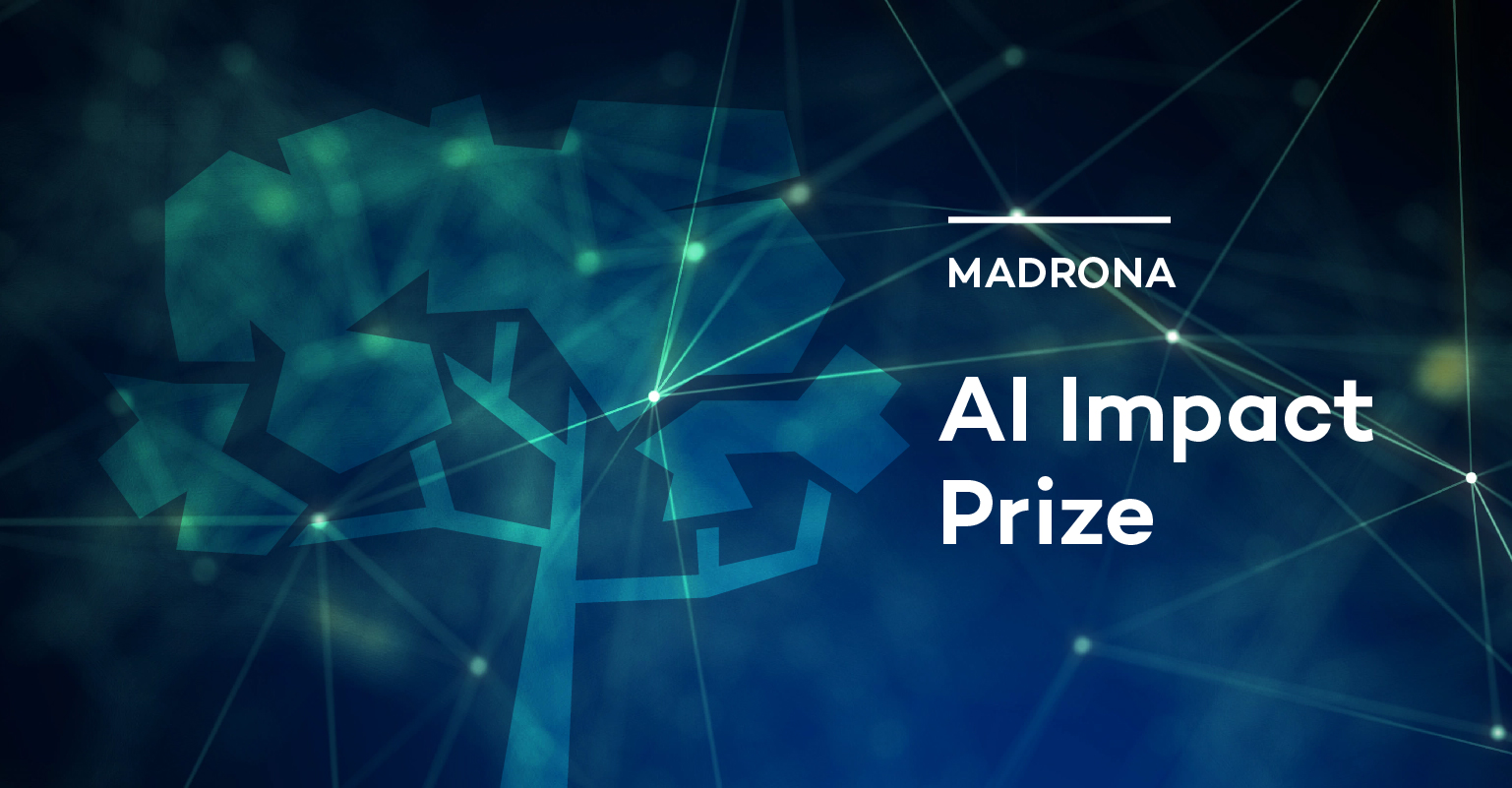Madrona has been investing in Artificial Intelligence and Machine Learning since 2013, when we started our Day One partnership with Carlos Guestrin of Turi. Over time our investment themes have embraced not only the core platforms required for AI and ML but the outcome of these technologies – the intelligent apps that are possible once you have the platforms and data connected. We have many companies in our portfolio now that are doing just this – Highspot, Clari, Suplari, OctoML, Ozette, WhyLabs and many more.
We also work deeply with AI researchers. For example, we helped the Allen Institute for Artificial Intelligence start a fund expressly for fueling the innovation of startups in this area and we partnered with their founders. Deepening our commitment, this year we are introducing AI Impact Prize. This is a prize given to a paper that has had outsize impact on the field.
Madrona Awards the Madrona AI Impact Prize to Researchers who Uncovered the Environmental Costs of Training AI Models
Keystone paper was first to draw attention to the dramatic growth in energy usage by AI models and make recommendations that have resulted in extensive further research and venture investment in HW/SW solutions to minimize carbon footprint of AI and NLP models
Madrona Venture Group, an early and acceleration stage venture capital firm based in Seattle, announced today the first recipients of a new prize for meaningful research in key investment areas for the firm, Artificial Intelligence and Machine Learning. The Madrona AI Impact Prize recognizes research released during the previous two years that has had outsize effect on subsequent research and commercial applications.
The recipients of the inaugural prize are Emma Strubell, Ananya Ganesh, and Andrew McCallum for their paper “Energy and Policy Considerations for Deep Learning in NLP,” published in the Proceedings of the 57th Annual Meeting of the Association for Computational Linguistics, pages 3645-3650, Florence, Italy, July 28 August 2, 2019. This group of talented researchers were the first to uncover the high CO2 cost of AI and NLP applications, showing that the training of one large transformer produced roughly the equivalent CO2 output of 5 car lifetimes of fuel emissions.
The paper took a deep look at the elements that go into training the AI and NLP models on which many applications rely and made clear recommendations for steps to decrease the environmental impact. Among those recommendations were to conduct more research to make algorithms more computationally efficient, build hardware that requires less energy and build tools to more easily tune models to different hardware configurations. Madrona has backed two companies in this area – Xnor.ai which optimized NLP for low power edge devices and OctoML which offers turn key tuning of ML models to fit various hardware configurations. Xnor was acquired by a large technology company, ensuring the technology will be used widely and OctoML has raised $47.6 million in funding and is growing quickly.
The prize was selected by a committee of researchers from The Paul G Allen School of Computer Science and Engineering at the University of Washington, leaders at the Allen Institute of Artificial Intelligence, and Madrona’s investors who are focused on this area of investing.
“Research is a crucial component in the innovation economy and we are proud to support the work that this team has done to shine a light on some of the challenges that startups and researchers can address in coming years,” said Matt McIlwain, Managing Director Madrona Venture Group. “As one of the very first early investors in AI technologies and platforms, we believe that AI and NLP applied to health data, business data and other applications will improve lives, and we can do that in an environmentally aware way.”
Comment from Emma Strubell – .”We have been working in the efficient ML and NLP space for years and, inspired in particular by the recent drastic growth in the size and computational requirements of the large language models that are at the core of most state-of-the-art NLP, realized that we weren’t aware of any efforts to actually quantify the potential environmental impact due to the growing computational demand of these models. We also wanted to highlight the growing inequity of access issue that large, computationally expensive models create, since increasingly fewer individuals and organizations have the ability to design, shape and use state-of-the-art models in ML and NLP. It is gratifying to see the huge impact that this paper has had in increasing interest in developing more efficient models and measuring the environmental impact of AI, and it is very exciting to receive this award.” Emma is Assistant Professor, Language Technologies Institute in the School of Computer Science at Carnegie Mellon University and a part-time Research Scientist at Google Research.
The paper published not quite two years ago has already been cited in over 500 subsequent papers.
Madrona modeled this prize after the Madrona Prize which is awarded annually to commercially promising research at the University of Washington and on the “Test of Time” papers that are awarded at several industry conferences to papers that have had outsize influence on subsequent work and society.
“We believe that deep research is the leading edge of discovery and innovation, and that by recognizing research with promise and helping to transition that research into viable companies and products creates a positive impact on society,” commented Dan Weld, an entrepreneur, professor and venture partner who plays an active role at Madrona and in the innovation ecosystem.

